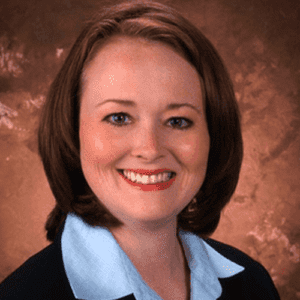
The purpose of this blog is to stimulate thought and discussion about important issues in healthcare. Opinions expressed are those of the author and do not necessarily express the views of CMDA. We encourage you to join the conversation on our website and share your experience, insight and expertise. CMDA has a rigorous and representative process in formulating official positions, which are largely limited to bioethical areas.
Truth, Grace and Love Beyond the Exam Room
November 21, 2019
by Autumn Dawn Galbreath, MD, MBA
In medical school, were you taught to treat all patients with equal care and concern? Were you taught that it is unethical to discriminate against patients—refusing to treat someone or treating them less thoroughly—based on race, nationality, religion or even ability to pay? Were you taught to respect the beliefs of each patient, even while trying to explain how some of those beliefs might be harming their health?
It’s safe to say that the answer to these questions is a resounding “yes.” Medical students today tell me they are even being taught that it is unethical to express their personal beliefs to a patient, and that the patient interaction must center exclusively around respect for the patient’s beliefs without regard for the physician’s own beliefs. This raises many important issues, but my concern in this reflection is with one specific one: why do we respect others so well in our roles as healthcare professionals, but generally do it so poorly in our roles as Christ-followers? Of course, there are issues of right of conscience, our call to spread the gospel, our own right to hold our beliefs as deeply as our patients hold theirs, etc. These issues are critically important, and many CMDA resources address them. My concern is, as we have rightly pursued these issues, defending our rights as Christian healthcare professionals and defending truth, have we failed to examine ourselves as Jesus called us to do? Have we been so busy addressing the “specks” in other people’s eyes that we have looked right past the logs in our own (Matthew 7:1-5)? Are we ourselves engaging in a double standard when it comes to compassion and grace?
What do I mean by this exactly? Reflect on the patients you saw last week. Think of one with whom you deeply disagree. Maybe the teenager seeking birth control without her parents’ knowledge. Or the tattooed and pierced IV drug abuser with Hepatitis C. Or the actively gay man who is HIV+. Or the mother of an obese child with type II diabetes who continues to provide most meals via a drive thru window. How did you respond to that patient when you sat with him or her face to face? If you were doing your job, you clearly addressed their risky behaviors. But how did you do it? Think of the words you used, your facial expressions and your body language. Also, think of your intentions. What were you trying to accomplish? Were you trying to shut them out and cut off communication? Or were you trying to keep them engaged with you so you could continue the long conversation across months or years? It’s safe to say that most of us recognize that behavior rarely changes after one conversation, so we whittle away at negative behaviors through numerous interactions over time, encouraging each small step a patient makes toward change. And we know maintaining a relationship with that patient is critical to ever affecting any change. We have to take things one step at a time and not make the patient feel unheard or disrespected, lest we lose our platform.
Now envision that same patient in the congregation of your church on a Sunday morning. What do your interactions look like then? Do you introduce yourself and engage with her? Do you patiently and respectfully try to understand his beliefs before lecturing him about your own? Do you go out of your way to show her you are concerned for her well-being? And, most importantly, do you recognize that change is a slow, step-wise process for most? Sadly, most of the time in this scenario, we Christians lecture without listening and value truth over relationship. We are so passionate in our crusade against sin that we forget that the people sinning are image-bearers of God, dearly loved people for whom Christ died. All the verses that we love to post in our homes or on our Facebook feeds apply to them, too. They, too, were “fearfully and wonderfully made” in their mothers’ wombs (Psalm 139:13-14). God numbers the hairs of their heads (Luke 12:7). God has plans for their future and hope (Jeremiah 29:11). And, most of all, Christ died for them (John 3:16). In fact, we ourselves eagerly claim the grace extended to us in Romans 5:8: “…while we were still sinners, Christ died for us” (ESV). Why is it we cannot extend the same grace to other sinners we encounter?
Somehow, in our rightful pursuit of truth, we Christians have managed to leave behind love and grace. Of course, love and grace without truth are hollow and are not what I am suggesting here. What I am suggesting is that we extend the same basic assumptions of listening, concern and respect we automatically offer within the examination room out into our wider interactions with the lost and the wandering. In the same way a smoker probably won’t quit the first time we encourage them to, a lost person actively engaged in a sinful lifestyle isn’t likely to turn on a dime and create a whole new life. Change takes time and relationship. Jesus was willing to walk with those who sinned even as He challenged their lifestyles. As His followers, shouldn’t we do the same?

